Businesses and non-profits seem to be two very different entities in our ecosystem. But if managed well, they can share some important commonalities in their DNAs. CKGSB Professor Zhu Rui (Juliet) is an expert as such in leveraging the advantages of businesses and non-profits to amplify each of their strengths.
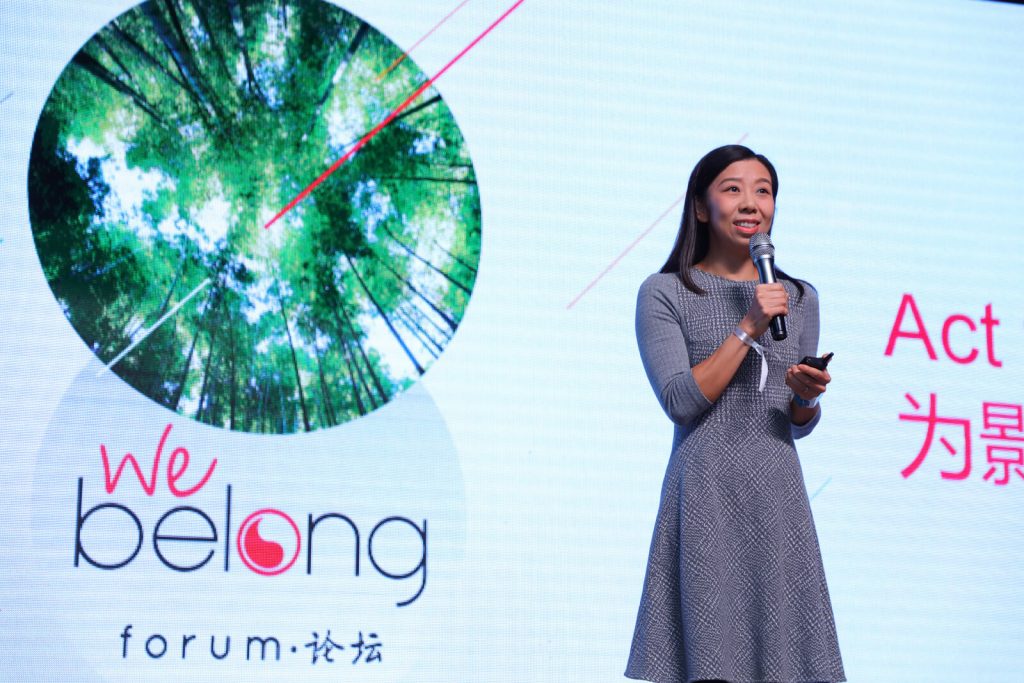
Professor Zhu Rui (Juliet) speaking at the WeBelong Forum
In the CKGSB-branded session at the 2018 WeBelong Forum in Beijing, a high-impact annual event that encourages innovative ideas for a sustainable future, Professor Juliet shed light on “socially-responsible business and business-minded non-profits.” Afterwards, she moderated a panel discussion with two CKGSB alumni—a businessman who is fully involved in philanthropy and a non-profit founder who runs his organization with a business mindset—to further elaborate on the interaction between business and philanthropy.
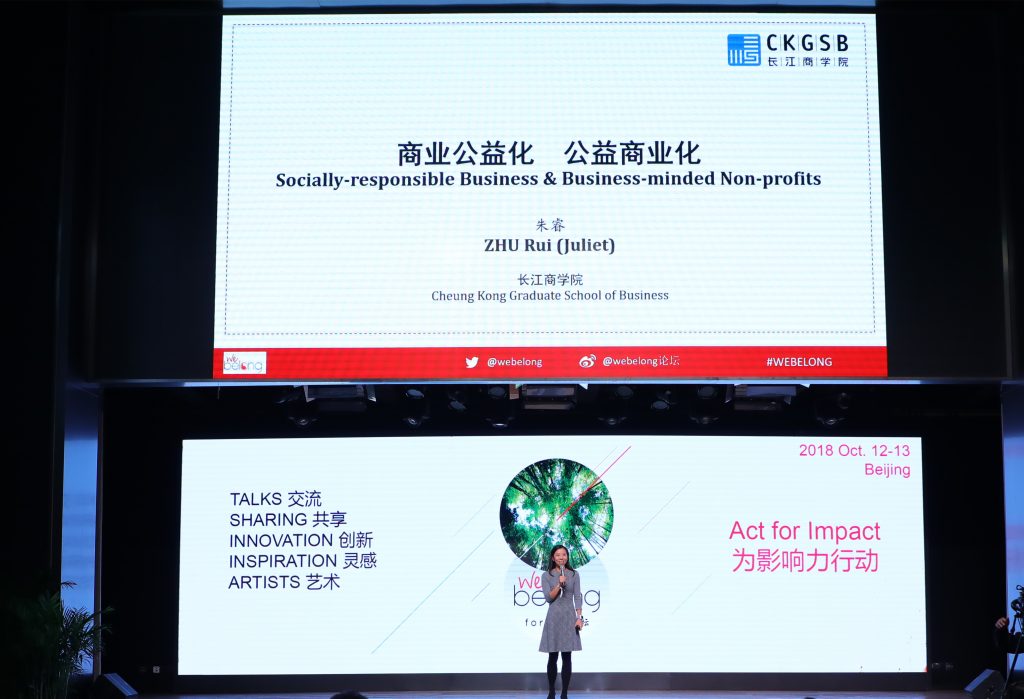
Professor Zhu Rui (Juliet) delivering her keynote speech at the 2018 WeBelong Forum
Professor Juliet addressed her speech from two angles: socially-responsible business and business-minded non-profits. She used case studies on Wuzhen Mode—an example of using anti-commercialization to become a popular tourist destination—and on Delong Steel—which is minimizing its operational costs due to its efforts on environmental protection to define what a socially-responsible business is, as “with a business’ core strengths in mind, identifying the connection between the core business activities and social problems, and improving the overall social welfare through innovation.”
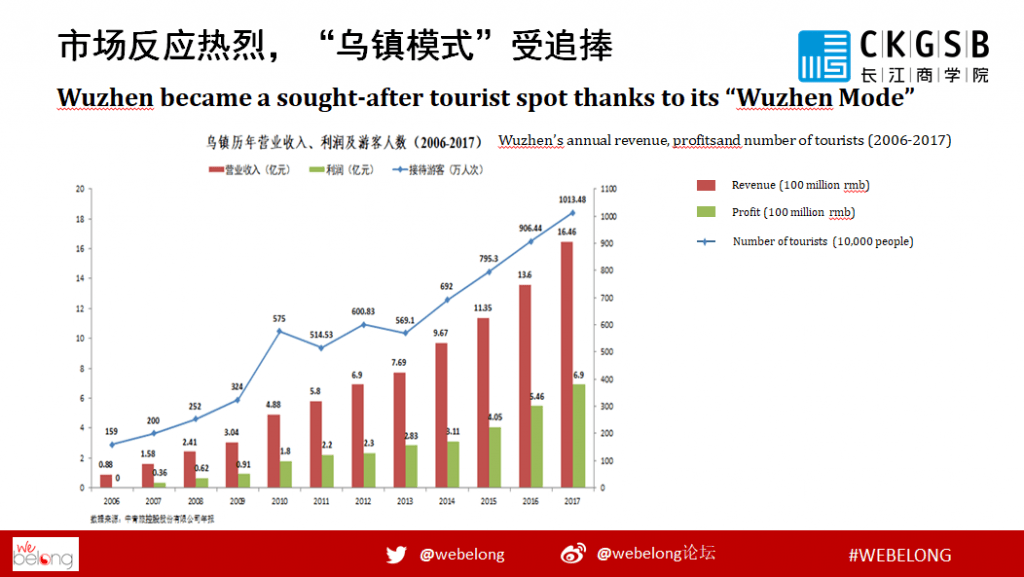
Wuzhen’s revenue chart. Source: Professor Juliet’s presentation slides
Then she pointed out what a business-minded non-profit is by referring to the cases of First Respond and Alxa SEE. First Respond, a social enterprise set up by a CKGSB alumnus, provides first-aid services to outdoor activities and now runs with a systematic business operation, a decentralized service system, systematic trainings and management. Alxa SEE, stemming from a business-driven innovation and efficiency model, has been operating a project to plant 100 million haloxylon trees in Alxa to contain the problem of desertification there. Juliet describes how a non-profit can “pinpoint core problems while continuously innovating and ensuring efficiency” in order to run more efficiently with a business mindset.
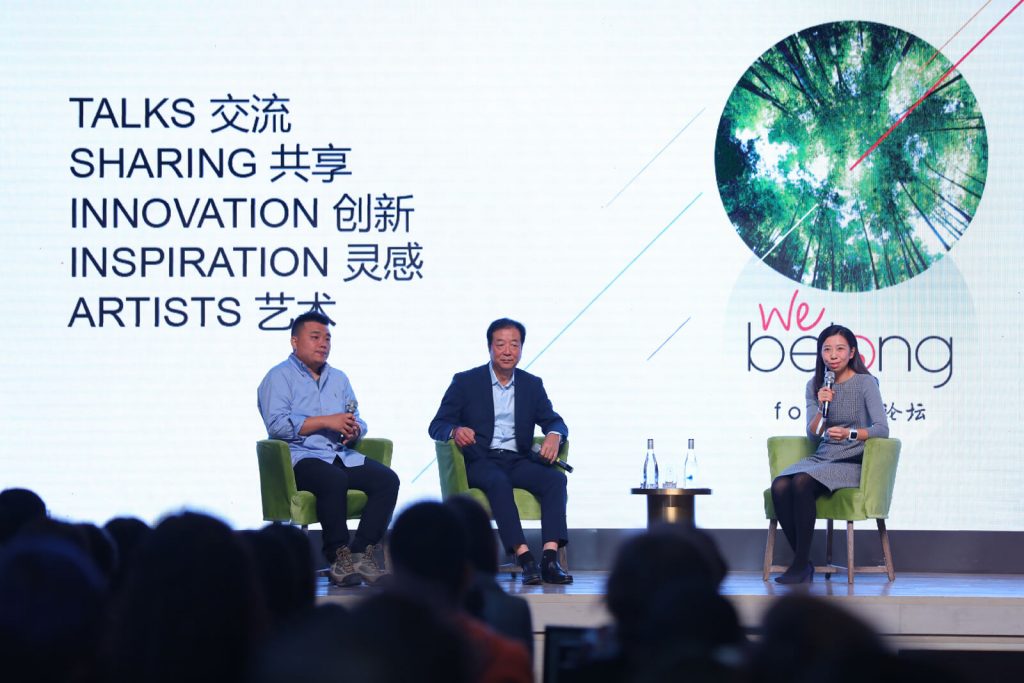
(From left to right) Miao Shiming, Yan Ming and Professor Zhu Rui
In the panel discussion, CKGSB alumni Yan Ming and Miao Shiming spoke with Juliet about what they have been doing to make the world more sustainable. Yan Ming wears many hats—Chairman of Xi’an LUCKY KING Group and Member of the 13th CPPCC, among numerous others. On top of all of these, he is a Council Member of Alxa Society of Entrepreneurs and Ecology (SEE), a non-profit organization formed mainly by entrepreneurs to fight desertification. Yan said, “I was a businessman but am now fully involved in the operation of Alxa SEE. Being a non-profit, our motto is to ‘foster entrepreneurship’. This means that we are not just convening businessmen for a cause. Instead, we are borrowing their entrepreneurial skills and their business mindset to run our philanthropic programs. Innovation, business acumen, the abilities to mobilize social resources, and the efficiency to get something done all determine how successful a philanthropic project can be.” Besides running the Alxa SEE, Yan Ming mentioned that one of the biggest takeaways from CKGSB for him has been “to incorporate philanthropy as part of my life”.
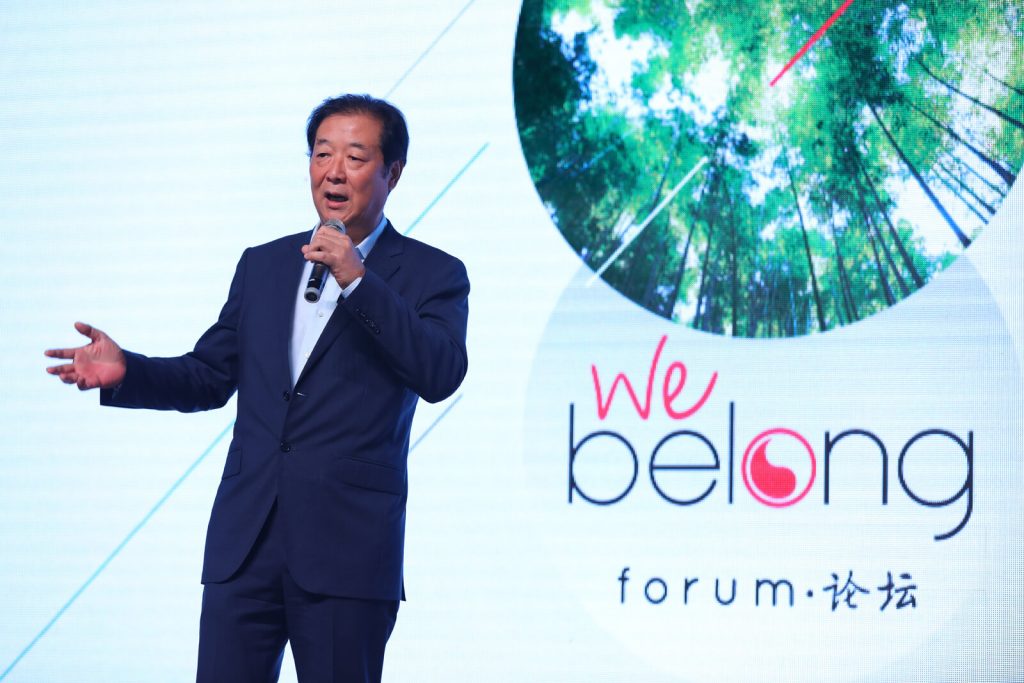
Yan Ming, Chairman of Xi’an LUCKY KING Group, Member of the 13th CPPCC, Council Member of Alxa Society of Entrepreneurs and Ecology (SEE), and CKGSB alumnus speaks during the panel
Miao Shiming, a CKGSB Executive MBA Philanthropy Scholarship recipient and alumnus, is Founder of World Art Brut Culture (WABC), a non-profit that helps kids with disabilities through the arts. Miao said his intention was simple. “I just want to help kids with disabilities (autism, for example) through the arts and enable our society to better understand their personal struggles, their family concerns and, more importantly, their values, so that one day they will no longer be seen as insane and will be given access to fit in the society,” said Miao. He then explained why he joined CKGSB and his greatest gains from the school. “We know about our target groups and how to do separate events. But to run my organization effectively, I still needed professional methods of operation and management. That’s why I came to study at CKGSB,” explained Miao.
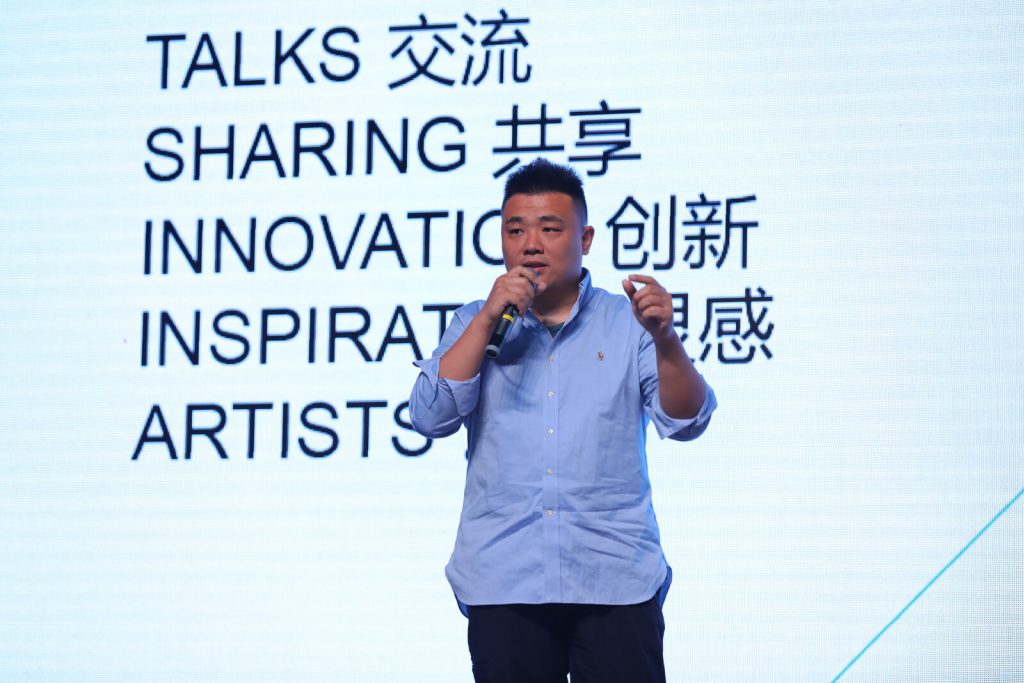
Miao Shiming, Founder of World Art Brut Culture (WABC) and CKGSB EMBA alumnus speaks during the panel
Juliet extended her gratitude to these two alumni for attending the event and sharing such valuable insights from their experiences. She concluded “Yan Ming, Miao Shiming and I, we have very different backgrounds—business, non-profit, and academic. But we all share one common identity—that we are all part of CKGSB.” CKGSB convenes people like these alumni—accomplished businessmen and caring philanthropic pioneers—to leverage the advantages of the two, in order to encourage businessmen to be more socially-minded and non-profit leaders to run their institutions with a business-mindset.

Left: 3D food printing, Right: water with edible wrappers
The 2018 WeBelong Forum, the fourth edition of a series, was organized in Beijing on October 13 by a French non-profit organization called the WeBelong Foundation, a long-term partner of CKGSB that values sustainable innovations and actions to shape a better and greener future. This year the Forum convened many innovative and interesting leaders who are socially responsible, including people from an edible wrapper producing company, an electronic waste recycling institution, a coral protection institution, and a 3D food printing company, to name a few. A number of these speakers applied for CKGSB’s MBA Philanthropic Scholarship, similar to the one our alumnus Miao has received.
About CKGSB MBA scholarship
As a further demonstration of its commitment to society, the CKGSB MBA Program awards The Social Responsibility and Green Future Scholarship (“the Philanthropy Scholarship”) each year to students who have demonstrated a commitment to the environment and to ethical business leadership, aimed at attracting ambitious, young, global talents who intend to create value for society with the spirit of social innovation. By offering a full-tuition award, this scholarship aims to promote their career in developing society and making a significant contribution to public welfare.
To know more about CKGSB’s philanthropy scholarships, please click here.